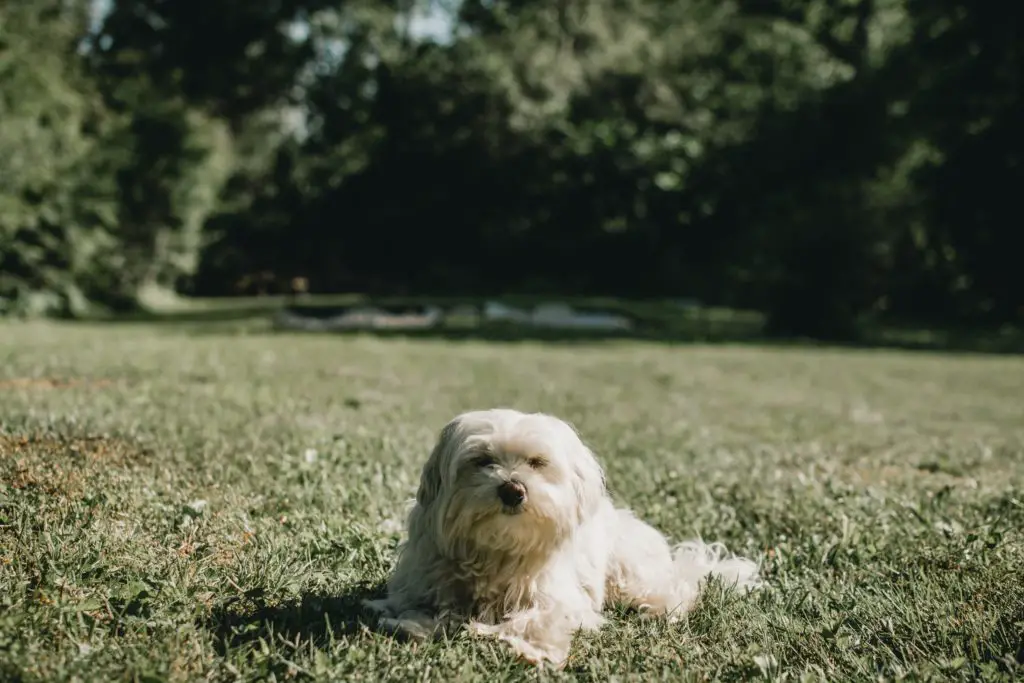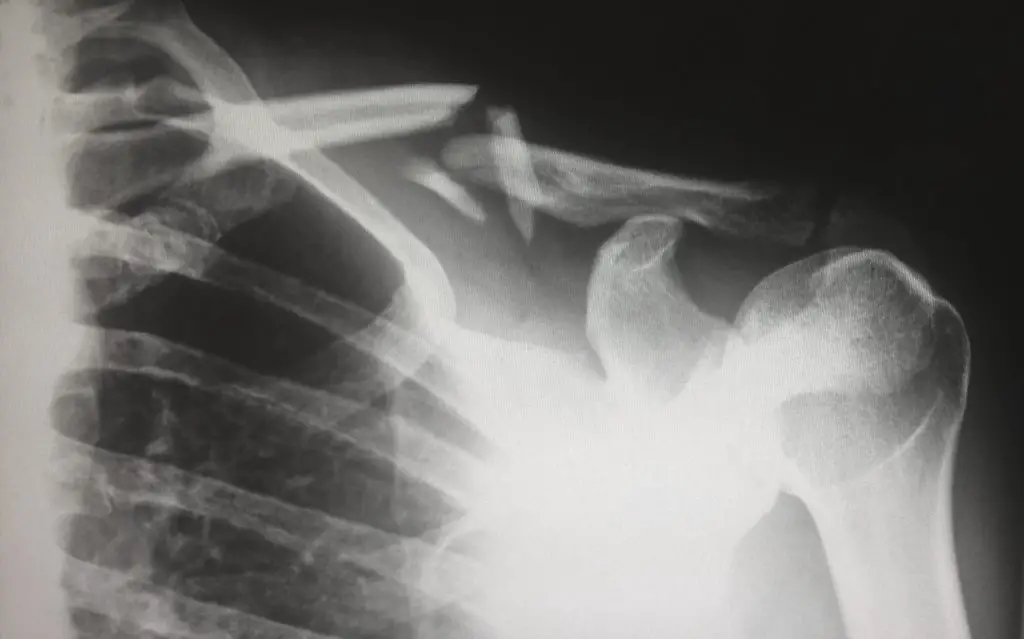Caring for Maltese Dogs with Arthritis
Arthritis can occur in a Maltese dog at any time but usually presents as your Maltese dog ages. While arthritis means your Maltese dog will be stiff and struggle to move around there are a few options to help relieve the pain, get them moving and help them be comfortable. There are four known types of arthritis in the Maltese breed and these include the most common which is known as Osteoarthritis, immune mediated, unknown or idiopathic and infective arthritis. Each one will be discussed in this article.
Arthritis is when the cartilage which is a cushion between the bones slowly declines and wears away to become thin. Cartilage is kept healthy by the body by using glucosamine and chondroitin which slowly decrease as a Maltese dog ages. As the cartilage breaks down and becomes thinner the bones start to rub against each other which can cause stiffness, inflammation and pain in the joints.
Maltese Arthritis Symptoms
When a Maltese has arthritis there are a variety of symptoms which may present. These include:
- Weakness: arthritis can cause the dog to be weak in their joints and limbs. The pain and inflammation from arthritis can cause the Maltese to limp or put less weight on the sore joint and this will be seen when they are walking or when they go from a standing to a sitting position or vice versa.
- Slowing down: A Maltese will stop being as active if they are sore from arthritis. If they seem to be less active and are not running as quickly as before it could be that your Maltese dog is suffering from arthritis.
- Lethargy / Tired: if your Maltese dog is sleeping more and seems to want to lay down more than usual then this could be a sign that arthritis is affecting their joints. They will be sore when they move, especially when the weather is cold or suddenly changes, and so will lay in a comfortable position.
- Stiffness in the joints: If you notice that your Maltese is getting up and down or moving up and down stairs then it is likely an arthritis problem. Pain in the joints will mean that your Maltese dog is slower, stiffer and less likely to move around. The stiffness is due to the pain of the bones grinding against each other when your Maltese moves.
- Discomfort: If you notice your Maltese dog looks uncomfortable when they are moving, sleeping or walking around then arthritis could be the cause. The pain in the joints will be uncomfortable and this will be obvious in the way your Maltese dog moves around.
- Weather changes: Arthritis tends to be a lot worse when the temperature plummets or a storm is on the way. The drop in temperature will exacerbate the above symptoms. If you notice any of the symptoms such as stiffness, soreness, weakness, etc during a temperature change then you should consult your vet to investigate if your Maltese has arthritis.

Types of Arthritis in Maltese Dogs:
Osteoarthritis in Maltese Dogs
The most common one that most people know about and the most common arthritis found in the Maltese dog breed is Osteoarthritis. Osteoarthritis is common in Maltese dogs as they age but can be found in Maltese dogs at any age. Its main symptom is inflamed and pain in the Maltese dogs joints. Nearly all Maltese dogs over the age of 8 years will show some degree of arthritis especially in their hind legs.
There are a variety of factors which can add to the onset of Osteoarthritis. These include:
- Age: Over 80% of dogs which are 8 years or older are affected by some form of arthritis. As an owner of a Maltese dog you should start to look for any signs of arthritis as your dog ages. Your vet should be able to check for it on your yearly checkup with your Maltese puppy.
- Weight: Excessive weight can add to the stress on the joints and ligaments making the cartilage break down quicker and earlier. Luckily Maltese dogs as a breed are usually not overweight.
- Activity: A highly active dog is more likely to break down the cartilage quicker than a less active dog. Luckily as Maltese dogs age they get less active, but if your older Maltese remains very active then there is a higher chance of the cartilage breaking down more quickly leading to a quicker onset of arthritis.
- Health issues: Some health issues such as hip dysplasia and a luxating patella can be signs that the Maltese will develop arthritis especially in those affected areas. This is because these health issues already affect the joints and will cause damage which will eventually result in the cartilage breaking down due to inflammation and thus in the long term arthritis.
Immune-mediated Arthritis in Maltese Dogs
Immune-mediated arthritis is a less common reason for arthritis systems in a Maltese dog. It is a disorder of the immune system which causes the immune system to cause inflammation in multiple joints of the Maltese dog. Basically the immune system of the Maltese puppy is causing the arthritis as it tries to fight off an unknown infection by inflaming the joints. This type of arthritis can be seen in any age of a Maltese dog but will usually be diagnosed more commonly in younger dogs.
Infective Arthritis in Maltese Dogs
Infective arthritis is due to a toxic inflammation of the Joints in dogs. It is also commonly known as septic arthritis. It occurs when there is inflammation in a joint which has occurred due to an infection. The infection can enter the joint via an injury, surgery or through bacteria in the blood stream of the Maltese dog. This arthritis is usually easier to diagnose at it will affect one joint and the reason will likely be obvious.
Unknown or Idiopathic Arthritis
If no underlying cause of arthritis is found in a younger Maltese puppy which can be classified as immune-mediated or infective arthritis then the arthritis cause will be deemed as idiopathic or unknown. This just means that the arthritis is present in the dogs joint but that the underlying cause can not be determined.

Diagnosis of Arthritis in Maltese Dogs
If you believe that your Maltese dog has arthritis then you should get your Veterinarian to do a check of the affected joints. There are a few ways they will diagnose it:
- Inspection: They will feel the joints and move the limbs of your Maltese to determine if there is any stiffness or soreness.
- X-Rays to assess the severity of the arthritis. Arthritis affects the bones which are shown clearly on the x-ray.
- Joint fluid may be extracted and tested in severe cases or cases of young Maltese. This is to provide an accurate diagnosis and to help identify the causes of the arthritis in younger Maltese dogs.
Once a diagnosis of arthritis has been made by your Veterinarian you will be given some options on treating the symptoms as well as prevention options to help prevent further decline in the joint cartilage.
How to Care for a Maltese Dog with Arthritis – Treatment Options
Your vet will be able to provide a range of medications and advice on how to treat your Maltese dog with Arthritis but this list below is as comprehensive as possible to provide you multiple options to provide the best care for your Maltese puppy. Caring for a Maltese dog with Arthritis can be done by:
- Get a good orthopedic canine bed for your Maltese. This should provide the right support and will ensure that pressure sores do not develop if your Maltese lays around too much. The best beds for Maltese dogs with arthritis use memory foam but if this is too expensive for your situation then ensure that at least they have a soft place to sleep with a soft blanket that will kept them warm and protect them from any cold drafts.
- Plug any drafts where your Maltese frequently sits, lays or sleeps. Coldness will make the joints feel stiffer and bring on more pain. Ensuring that you put a door snake under any doors and that a blanket is placed below the bed as well as on top of the bed to stop any updrafts through wooden floorboards.
- Place down mats on any slippery surfaces. Your Maltese joints will hurt more and their condition can exacerbate if they are slipping and sliding on wooden floor boards or tiles. Its a good idea to place slip free maps on any hard floors to ensure that your dog does not accidentally slip. any alternative is to use some floor wax which allows better traction.
- Use ramps and steps anywhere your Maltese needs to climb. if your Maltese likes to climb onto the couch then add a small step in front of the couch so that they do not need to jump up and down any sizable objects. Generally steps will be OK but if this does become too much for your Maltese dog then a ramp can be easily created or bought to allow them access to their favorite areas. Jumping up and down will extend the joints and cause further inflammation triggering arthritic pain.
- Exercise: Keep the exercise regular as this will ensure that joints stay lubricated and flexible. The joints will stiffen up and make the arthritic pain worse if there is only minimal movement each day. Keep the exercise to easy walks which are short but keep them regular with a least one walk per day. Try and keep the excitement of the Maltese dog at a moderate level as if they get too over excited they may push the joints too hard rather than just working them looser. Sitting still all day and not moving will only make your house bound Maltese feel worse when they do move due to the stiffness in the joints.
- Massage: Some gentle massage on the muscles around the joints can help to work out any soreness in the area. There are certified massage therapists for dogs who are trained to provide the right techniques to work out any soreness. They may even be able to show you some massages which can be done by you to help your dog.
- Warm compress on affected areas: On cold days placing a warm compress on the affected joints with a towel around the warm compress will slowly warm up the joint and make it less stiff for your Maltese dog. This helps best on cold days but can work anytime arthritic pain is being felt by your Maltese puppy.
- Supplements : The correct supplements can help the body to repair the cartilage and improve the joint movement by replacing the glucosamine and chondroitin which the body is no longer producing in sufficient quantity. Supplements can also help to reduce inflammation and improve blood flow to the joints which will help reduce the pain for your Maltese dog. Supplements which include Omega-3 fatty fish oil are especially good at relieving inflammation and joint pain.

Options for Treatments which your Veterinarian may offer include:
- Injections (Adequan) which is an approved drug for dogs which helps repair the cartilage. It is known to have a good result in dogs based on reviews from owners. It can be expensive (depending on the country) but has few side effects and is a viable option which your Vet may recommend. I have used it for our Maltese and it worked extremely well for our dog.
- Anti inflammatory medication: Drugs which help reduce the inflammation and pain in joints may be prescribed by your vet. These medications can have some side effects which can be minimal to serious such as organ damage. The side effect of the medication needs to be compared to the age of your dog, as a medication which may damage an organ in five years of continued use may be acceptable for an 18 year old Maltese dog to keep them in a more comfortable life for the tail end of their years. Your vet will discuss the side effects and their recommendation in regard to the specifics of your Maltese dog.
- Anti-Pain medication: Some medication can be given for severe pain especially where other treatments have not been successful. These are usually to help keep the dog comfortable from pain rather than help treat the underlying cause.
- Laser treatment: A cutting edge treatment which stimulates the blood flow around the joints. The increased blood flow helps repaid damaged tissue and reduce inflammation.
- Acupuncture: Some vets may offer acupuncture for your Maltese. This is an alternative treatment which will help with pain management but does not fix the underlying cause. Some owners have reported good results from acupuncture.
- Vitamin injections: Infections of dextrose has been shown to help cell growth in joint tissues. This can help support the joint better and reduce pain.
Prevention of Arthritis in Maltese Dogs
Being proactive rather than reactive can be a great benefit for your Maltese dog. Reducing the likelihood of your Maltese dog getting arthritis will save them years of pain and discomfort. There are several things which an owner can do to limit the impact of arthritis in a Maltese dog:
- Regular Exercise: Keeping a regular exercise routine throughout the life of a Maltese dog will ensure that the joints are kept strong and flexible. The walks do not need to be intensive but they should be enough time to get your Maltese moving and keep them fit.
- Restrict activities that cause impact to the joints: This includes jumping off sofas, lounges, high steps, or other furniture. To stop this from occurring place steps or a ramp for your Maltese dog to use to get to their favorite places.
- Supplements: Using supplements early can help keep up the glucosamine and chondroitin for the joints. These supplements should be given once the Maltese puppy turns 6 years old. This is a proactive treatment which should help extend the time till any arthritis inflammation and pain affects your Maltese dog.
- Weight: Ensure that your Maltese puppy is kept at a reasonable weight throughout their life so that their is less pressure on the joints. This is especially important as they get older and start to become more lazy.
How did we do answering your questions on Caring for a Maltese Dog with Arthritis in a Maltese dog?
Prevention is always better than treatment so if you own a younger Maltese then think about the best ways you can prevent arthritis from occurring as your Maltese puppy ages. Remember that arthritis is very common in Maltese dogs over 8 years old so it is something which should be treated and talked about with your Veterinarian. Is there any other treatments or prevention techniques that you know of that have worked for you? Do you have a Maltese dog with arthritis? if so let us know what has worked for you and what you have found works best for caring for a Maltese dog with arthritis.


Best ways to know about Caring for Maltese Dogs with Arthritis
Hi, I am Lara and i am the blogger and web designer , But also i love pets and i believe that pets are the best part of our family so they are really special god gifted, I also have a Best Pet Blog and if you are the pet lover you also check this blog and you must be learn more about pets.